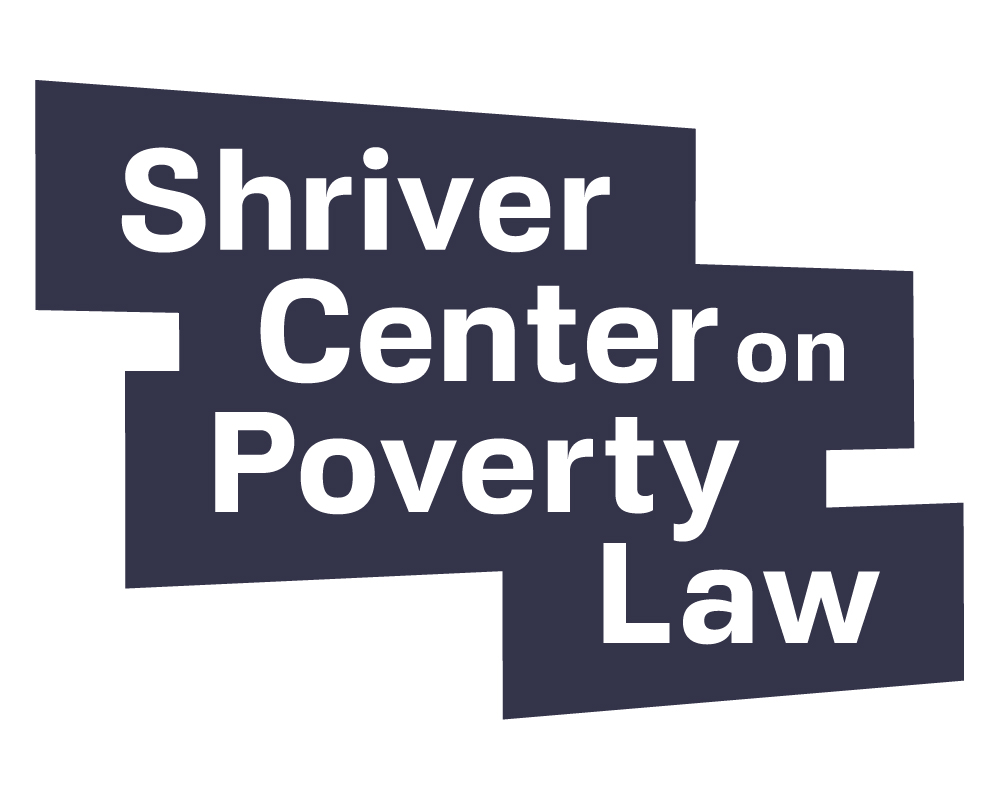
Shriver Center on Poverty Law: Leading the Fight for Economic and Racial Justice
Championing Equal Dignity Under Law for Nearly Six Decades
The Shriver Center on Poverty Law stands as a beacon of hope for millions of Americans facing economic hardship and systemic inequality. As a national leader in poverty law and social justice advocacy, this Chicago-based organization has dedicated nearly 60 years to transforming lives through strategic litigation, policy reform, and community empowerment.
Named after Sargent Shriver, the visionary founder of the federal Legal Services Program, the Shriver Center carries forward his revolutionary approach to legal advocacy. Shriver’s belief that law should serve as a powerful tool for social change continues to drive the organization’s mission today, creating lasting impact for low-income communities across America.
The Mission: Economic and Racial Justice Through Law
The Shriver Center on Poverty Law is leading the fight for economic and racial justice by litigating, shaping policy, and training and connecting people in the advocacy community. This multi-faceted approach addresses the root causes of poverty while providing immediate relief to those in need.
The organization recognizes that policies and laws creating and perpetuating poverty and racial inequity are woven into America’s social fabric. Through comprehensive advocacy strategies, the Shriver Center works to dismantle these systemic barriers and build a future where all people have equal dignity, respect, and power under the law.
Core Areas of Advocacy and Impact
Strategic Litigation and Legal Reform
The Shriver Center engages in impact litigation that sets precedents and creates systemic change. Their legal team tackles cases involving housing discrimination, healthcare access, employment rights, and civil rights violations. Each lawsuit is carefully selected for its potential to benefit entire communities, not just individual clients.
Policy Development and Advocacy
Beyond the courtroom, the organization shapes legislation and policies at local, state, and federal levels. Their policy experts work with lawmakers, community leaders, and advocacy groups to develop comprehensive solutions to complex social problems. This includes advancing policies related to fair housing, affordable healthcare, childcare access, education equity, and criminal justice reform.
Training and Capacity Building
The Shriver Center provides intensive training programs and resources that enable advocates across the country to effectively serve low-income communities. Through workshops, conferences, and educational materials, they build a nationwide network of skilled poverty law practitioners and community leaders.
Community Organizing and Grassroots Support
Understanding that lasting change requires community involvement, the Shriver Center supports grassroots organizing efforts. They provide legal assistance to community groups working on systemic issues and help amplify the voices of those directly affected by poverty and inequality.
Areas of Legal Expertise
The Shriver Center’s comprehensive approach addresses multiple interconnected aspects of poverty law:
Housing and Community Development: Fighting for fair housing practices, affordable housing preservation, and community development initiatives that prevent displacement and gentrification.
Healthcare Access and Rights: Advocating for expanded healthcare access, fighting discriminatory practices in healthcare delivery, and ensuring that low-income individuals receive quality medical care.
Employment and Economic Security: Challenging workplace discrimination, fighting for fair wages and working conditions, and advocating for policies that promote economic stability for working families.
Education Equity: Working to ensure that all children have access to quality education regardless of their economic background, addressing school funding disparities and disciplinary policies that disproportionately affect minority students.
Public Benefits and Social Safety Net: Protecting and expanding access to critical public benefits programs, including SNAP, Medicaid, and housing assistance, while fighting arbitrary benefit denials and bureaucratic barriers.
Civil Rights and Racial Justice: Addressing systemic racism in all its forms, from discriminatory law enforcement practices to inequitable access to public services and economic opportunities.
The Clearinghouse Review: A Cornerstone of Poverty Law Practice
One of the Shriver Center’s most significant contributions to the legal community is the publication of Clearinghouse Review, a premier journal for poverty law practitioners. This publication serves as a vital resource for attorneys, advocates, and policymakers working on issues affecting low-income communities.
Clearinghouse Review provides cutting-edge legal analysis, practice tips, case studies, and policy insights that help practitioners stay current with developments in poverty law. The journal has been instrumental in sharing successful strategies and building the intellectual foundation for the modern poverty law movement.
National Leadership and Collaboration
The Shriver Center’s influence extends far beyond Illinois. The organization convenes multi-state networks of lawyers, community leaders, and activists, fostering collaboration and knowledge sharing across geographic boundaries. This national approach recognizes that poverty and inequality are not isolated local issues but require coordinated responses at all levels of government and civil society.
Through partnerships with other legal aid organizations, civil rights groups, and community-based organizations, the Shriver Center multiplies its impact and ensures that successful strategies developed in one community can be adapted and implemented elsewhere.
Measuring Success: Hundreds of Victories for Justice
Over its nearly 60-year history, the Shriver Center has secured hundreds of victories with and for people living in poverty in Illinois and across the country. These victories take many forms, from landmark court decisions that establish new legal protections to policy changes that expand access to essential services.
The organization measures success not just in terms of individual cases won, but in systemic changes that improve conditions for entire communities. This might include successful challenges to discriminatory housing practices that open up new neighborhoods to low-income families, or policy advocacy that results in expanded healthcare coverage for vulnerable populations.
The Vision: Equal Dignity for All
The Shriver Center’s ultimate vision is a future where all people have equal dignity, respect, and power under the law. This ambitious goal drives every aspect of their work, from the cases they choose to litigate to the policies they advocate for and the training programs they provide.
This vision acknowledges that true justice requires more than just equal treatment under the law; it requires addressing the systemic barriers that prevent people from accessing the opportunities and resources they need to thrive. The Shriver Center works toward a society where economic status does not determine access to justice, healthcare, education, or housing.
Innovation in Legal Advocacy
The Shriver Center continues to innovate in its approach to legal advocacy, adapting to new challenges and opportunities in the digital age. This includes using data and research to identify emerging issues, leveraging technology to reach more people in need of legal assistance, and developing new models for community-based legal services.
The organization also recognizes the importance of addressing the intersectional nature of poverty and discrimination. Their work increasingly focuses on how multiple forms of discrimination based on race, gender, disability status, immigration status, and other factors compound to create unique challenges for different communities.
Frequently Asked Questions (FAQs)
What is the Shriver Center on Poverty Law?
The Shriver Center on Poverty Law is a national legal advocacy organization based in Chicago that fights for economic and racial justice through strategic litigation, policy advocacy, and training programs. Named after Sargent Shriver, founder of the federal Legal Services Program, the organization has been working to improve the lives of low-income people and communities for nearly 60 years.
What types of legal services does the Shriver Center provide?
The Shriver Center focuses on systemic advocacy rather than individual case representation. Their work includes impact litigation that creates precedent-setting legal changes, policy development and advocacy at all levels of government, and training and resource provision for other legal advocates. They address issues including housing discrimination, healthcare access, employment rights, education equity, and civil rights violations.
Who can benefit from the Shriver Center’s work?
The Shriver Center’s work benefits low-income individuals and communities across the United States, with a particular focus on addressing racial and economic inequities. While they don’t provide direct legal services to individuals, their systemic advocacy work creates positive changes that impact entire communities and vulnerable populations nationwide.
How does the Shriver Center differ from traditional legal aid organizations?
Unlike traditional legal aid organizations that primarily focus on individual client representation, the Shriver Center concentrates on systemic change through impact litigation and policy advocacy. They work to address the root causes of poverty and inequality rather than just treating the symptoms, creating broad-based solutions that benefit entire communities.
What is Clearinghouse Review?
Clearinghouse Review is a premier legal journal published by the Shriver Center that serves as a vital resource for poverty law practitioners nationwide. The publication provides cutting-edge legal analysis, practice guides, case studies, and policy insights for attorneys, advocates, and policymakers working on issues affecting low-income communities.
How can attorneys and advocates get involved with the Shriver Center?
Legal professionals can engage with the Shriver Center through their training programs, conferences, and educational resources. The organization provides intensive training for advocates across the country and maintains networks of lawyers and community leaders working on poverty-related issues. Interested professionals can contact the center directly to learn about upcoming training opportunities and collaboration possibilities.
What areas of law does the Shriver Center focus on?
The Shriver Center’s work spans multiple interconnected areas of poverty law, including fair housing and community development, healthcare access, employment and economic security, education equity, public benefits and social safety net programs, civil rights and racial justice, and criminal justice reform.
How is the Shriver Center funded?
As a nonprofit organization, the Shriver Center relies on funding from foundations, grants, individual donors, and other philanthropic sources to support their advocacy work. They are committed to transparency in their operations and financial management.
Can individuals seek direct legal help from the Shriver Center?
The Shriver Center primarily focuses on systemic advocacy rather than individual case representation. Individuals seeking direct legal assistance should contact their local legal aid organization or bar association for referrals to appropriate services in their area.
How can I stay updated on the Shriver Center’s work?
You can stay informed about the Shriver Center’s work by visiting their website at povertylaw.org, following them on social media, subscribing to their publications, and attending their training programs and conferences. They regularly share updates about their litigation victories, policy advocacy efforts, and educational resources.
What makes the Shriver Center’s approach unique?
The Shriver Center’s approach is unique in its combination of strategic litigation, policy advocacy, and capacity building. They work at multiple levels simultaneously, addressing immediate legal needs while also working for long-term systemic change. Their focus on building networks and training other advocates multiplies their impact across the country.
How does the Shriver Center address racial justice issues?
Racial justice is a core component of the Shriver Center’s mission. They recognize that poverty and racism are deeply intertwined and work to address both simultaneously. This includes challenging discriminatory practices in housing, employment, education, and criminal justice, while also advocating for policies that promote racial equity and address historical injustices.